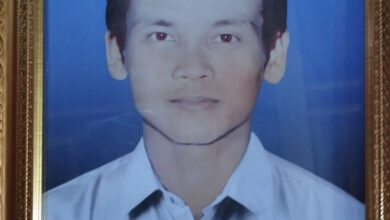
A junta statement released on Wednesday outlined exemptions to—and possible backtracking on—an earlier Central Bank order demanding that foreign currencies received in the country be immediately exchanged to Myanmar kyat.
The controversial April 3 declaration, indicative of the military’s attempts to tighten access to and regulations on international monies, requires local businesses to exchange such earned funds at licenced banks within one day of receipt and at a fixed rate of 1,850 kyat per dollar. Additionally, permission must be obtained from the military in order to use currencies such as US dollars within the country.
In Wednesday’s update, multiple commercial and diplomatic institutions and individuals were identified as being released from adherence to the rule, likely a response to the widespread criticism that followed the announcement. Among them were businesses involved in foreign direct investment and Special Economic Zones, airlines, and foreign employees from embassies, the UN and approved international aid agencies.
The military also warned banks holding licences as “authorised dealers” in foreign currency to thoroughly scrutinise businesses and individuals to determine whether they are allowed the exemption, and to report all such transactions to the junta-controlled Central Bank.
A reinforcement of the 1,850-kyat exchange rate will particularly hurt farmers and those dealing in livestock, a local exporter—not subject to the exemptions—told Myanmar Now, noting that the figure is below the dollar’s current value in the country.
“It will cause a lot of damage for the primary producers,” he said, referring to local suppliers of raw materials for export, such as crops.
The exporter explained that locals in the agricultural sector are often making initial purchases at a rate of 2,000 kyat per dollar, and stand to lose nearly 200 kyat later when forced to return to the junta’s lower fixed rate in order to export their harvests.
A Yangon-based owner of two currency exchange venues said on the condition of anonymity that the forced conversion of US dollars to kyat would halt the flow of foreign currency to local markets, creating difficulties for those who require these funds for education, health and travel purposes.
Furthermore, a military order that permission must be obtained in order to convert kyat to dollars could cause a spike in commodity prices due to a heavy reliance on imports, he added.
Since further restrictions have been placed on currency exchange, importers have been forced to bring in less petrol and diesel to Myanmar: people in cities including Yangon and Mandalay have begun hoarding fuel, and some gas stations have been forced to close.
Twelve international chambers of commerce released a joint statement on April 8 objecting to the junta’s restrictions on foreign currency, describing it as having a negative impact on the public, international business and foreign investment. The embassies of Japan and Singapore—two major investors in Myanmar—also responded to the order with statements of their own, asking the junta to reconsider the move and to grant them exemptions.
The Central Bank has been under fire for collaborating with the junta since the February 2021 coup, issuing multiple directives that have made it increasingly difficult for Myanmar civilians to access their own funds.
Four days after the financial institution’s April 3 order was made public, the Yangon Region Military Command—which answers to the shadow National Unity Government—claimed responsibility for the shooting of the Central Bank’s deputy governor in her Yangon home. Than Than Swe, 55, survived the assassination attempt, Myanmar Now was able to confirm.
![Resistance fighters holding heavy weapons ammunition in central Myanmar. (Photo: Freedom Revolution Force [FRF])](https://myanmar-now.org/en/wp-content/uploads/sites/5/2024/04/438869056_443267851680128_1706386881626943924_n-390x220.jpeg)


